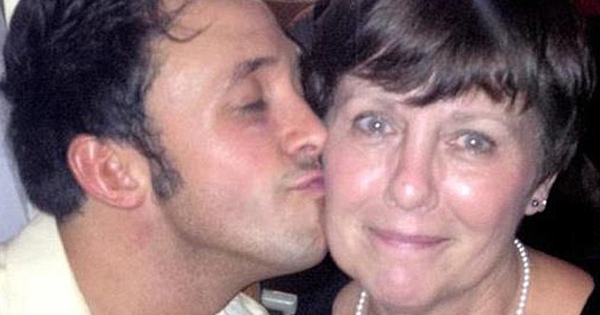If you’re a mother, you probably know every detail of what your child looks like.
For KC Andrew, this just isn’t possible.
KC suffers from prosopagnosia—for watchers of Arrested Development, you may know this as face blindness. It’s a neurological disorder that causes people to be unable to recognize faces.
It used to be considered a rare condition, but now specialists in face blindness believe it affects up to 1 in 50 people.
For KC, it’s so bad that even when she sees her own reflection, she’s mistaken herself for another person and said “excuse me.”
She says she’s had it since she was a little girl. When she was at church, she wouldn’t recognize people that her mother had introduced to her many times.
“Mum would scold me for never saying ‘Hi Mrs. Smith,’” and I’d go, ‘Who’s Mrs. Smith?’ I may have talked to her every Sunday but I didn’t know what she looked like. I didn’t have a clue,” says KC.
Her father also has face blindness, but her mother is the opposite.
Through her childhood, she knew she was bad with faces, but she only realized how bad it had actually gotten when she lost her mother while working in a large department store. At the age of 19, she couldn’t recognize her.
“I looked up at her and said, ‘Sorry, I’ll be with you in just a minute,’ and the woman said ‘KC—it’s mum,’” says KC. “I hadn’t recognized my own mother because I wasn’t expecting her. That was the strangest feeling ever.”
Once, her ex-husband threw her a surprise birthday party, but she didn’t recognize any of the attendees.
“The wait staff guided us into a back room, and all these people were whooping and yelling. I couldn’t for the life of me understand why…Then suddenly, it clicked—Charlie had organized a surprise party, and this sea of faces must have been people that knew me.
“It was because I had recognized my grandfather’s good shirt which he also wore to dress up to a family event. It was like having a bag pulled off my head. Suddenly it all became clear.”
She hasn’t let her disorder get her down though. Her children also have face blindness. She adapts to her disorder in interesting ways. She studies mannerisms, hairstyle, and dress, and has gotten used to asking people to tell her their name again.
“People have worse things, you know?” she says. “I know others who are mortified by this condition, and will agonize over it. It’s mildly embarrassing, yes. But I approach a lot of things with humor, and face blindness is no different. I deal with it.”





